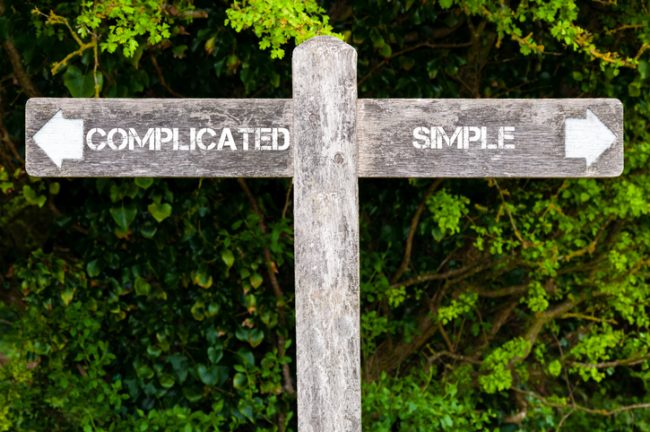Minimalism is trendy these days. There are even two guys (aptly named The Minimalists) who’ve made a small industry of the mindset. Tiny houses have become popular too.
Technology has helped the shift toward “tiny living” (no need for CD’s if you can stream music). But the basic reasons for its appeal are nothing new.
Being a minimalist has lots of advantages. Here are five:
1. Your physical load is lighter
Unless you plan on living in your current digs till death do you part, you’re going to move at some point, and probably more than once. It’s a heck of a lot easier if you don’t have hundreds (thousands?) of pounds of stuffs to sort through, pack, lug with you, and then unpack. Moving is one of life’s big stressors. Getting all your goods from point A to point B is part of it.
2. Your mental load is lighter
Without fail, what’s on your mind almost always has an element of the material world. The next time you’re fretting (or even just pondering) something, check in. If what you’re thinking about involves money in any way, that’s your indicator.
3. Your ethical character gets a boost
The less you consume, the more the environment and all its animals – who have no say over human behavior – prosper, or at least don’t have their existence threatened. Contrary to what many people think, the planet isn’t here to serve their needs. It’s just here, and so are they, and so are all the plants and animals.
4. Your health improves
Less stuff means lower consumption of fossil fuels to create and transport products. That makes for a cleaner planet. A cleaner planet means a healthier you. Plus, many products aren’t made to last, so they end up in the trash pretty fast.
And even if they are top-notch, people tire of them – which brings us back to an essential tenet of minimalism: You didn’t really need all that stuff to begin with. The average American throws away about 70 pounds of clothing or other textiles a year, according to the Council for Textile Recycling. That’s a lot of waste.
5. Your wallet is fatter
This one’s a no-brainer. The less you buy, the more money you have – to either buy things that really matter to you or spend on experiences, which studies ad nauseam tell us make for a happier life than material goods. Living in a tiny, simple home is the whopper example. “Your taxes are lower, your insurance is lower,” says Greg Johnson, a founder of the Small House Society, in Iowa City, Iowa. “It’s just cheaper to live, and you can spend your money on something else.”
Let those upsides sink in.
Learning to live life with less takes work if you’re someone who consumes with abandon. But it’s much easier if you bring to mind one question every time you’re about to buy something: “Do I need this?”
We need things we can’t live without, and that’s a pretty short list. Most of the things we acquire are wants, so the second question is: “How much value does this add to my life compared with its costs?” To figure that out, refer to the list above.
Connect with journalist and wellness writer Mitra Malek at mitramalek.com.

